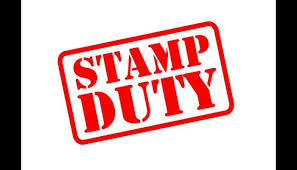Stamp duties are an essential part of transactions involving legal documents, serving as evidence of payments made to authenticate such instruments in Nigeria.
As we approach 2026, understanding the cost of stamp duties in Nigeria and the processes involved in their application is crucial for individuals and businesses.
This comprehensive guide explains the rates, categories, application steps, and answers common questions to help you navigate the system seamlessly.
What is Stamp Duty?
Stamp duty is a tax levied on documents such as agreements, deeds, and other legal instruments to make them legally enforceable.
The tax serves as proof of payment for official purposes and is governed by the Stamp Duties Act (Cap S8, Laws of the Federation of Nigeria, 2004) and its amendments.
In Nigeria, the Federal Inland Revenue Service (FIRS) administers stamp duties for corporate bodies and residents of the Federal Capital Territory (FCT), while State Internal Revenue Services handle duties for individuals and unincorporated entities.
Categories of Stamp Duties
Stamp duties in Nigeria are classified into two main categories:
- Ad Valorem Duties: Charges based on the monetary value of the transaction.
- Flat Rate Duties: Fixed charges applied regardless of the transaction’s value.
Cost of Stamp Duties in Nigeria (2026)
Below is a detailed table outlining the cost of stamp duties for various types of transactions:
Individual Transactions
| S/N | Name | Type | Rate | Extra Copy Fee | Cost Per Million (if applicable) |
|---|---|---|---|---|---|
| 1 | Appointment of Receiver | Flat Rate | ₦500 | ₦50 | N/A |
| 2 | Appointment of Trustee or Attorney | Flat Rate | ₦500 | ₦50 | N/A |
| 3 | Appraisement/Valuation of Property | Ad Valorem | 1.5% | ₦50 | ₦15,000 |
| 4 | Bank Cheque Per Leaflet | Flat Rate | ₦1 | Free | N/A |
| 5 | Bank Deposit/Transfer | Flat Rate | ₦50 | ₦100 | N/A |
| 6 | Bill of Sale | Ad Valorem | 1.5% | ₦50 | ₦15,000 |
| 7 | Bonds (Mortgage) | Ad Valorem | 0.375% | ₦50 | ₦3,750 |
| 8 | Certificate of Occupancy | Flat Rate | ₦1,000 | ₦50 | N/A |
| 9 | Contract Agreement | Ad Valorem | 1% | ₦50 | ₦10,000 |
| 10 | Contract Notes | Ad Valorem | 0.08% | ₦50 | ₦800 |
Bulk Transactions
For bulk transactions, such as high-value contracts or agreements, stamp duties are typically charged at lower rates to encourage compliance. Below is an example:
| S/N | Name | Type | Rate | Extra Copy Fee | Cost Per Million |
|---|---|---|---|---|---|
| 1 | Contract Agreement | Ad Valorem | 1% | ₦50 | ₦10,000 |
| 2 | Share Increase (Post-Incorporation) | Ad Valorem | 0.75% | ₦50 | ₦7,500 |
Step-by-Step Guide to Paying Stamp Duties in Nigeria
Step 1: Determine the Nature of the Transaction
Understand the type of instrument you want to stamp, whether it is subject to ad valorem or flat rate charges.
Step 2: Prepare the Required Documents
Gather the necessary documents, which typically include:
- The original instrument or agreement.
- Supporting documentation (e.g., valuation reports for property).
Step 3: Calculate the Applicable Stamp Duty
Use the provided tables to calculate the amount payable based on the nature and value of the transaction.
Step 4: Submit Documents for Stamping
- For Corporate Entities: Submit the documents to the FIRS.
- For Individuals: Submit to the State Internal Revenue Service.
Step 5: Make Payment
Payment can be made via:
- FIRS’ online portal (eStamp).
- State government revenue platforms.
Step 6: Obtain Stamped Documents
After payment, the documents are stamped and returned to you as proof of compliance.
Frequently Asked Questions (FAQs)
1. What is the penalty for not stamping a document in Nigeria?
Failure to stamp a document can render it inadmissible in court and may attract fines equivalent to the unpaid duty.
2. Are all transactions subject to stamp duties?
No. Certain transactions, such as shipping agreements and share transfers, are exempt from stamp duties.
3. How is ad valorem stamp duty calculated?
Ad valorem duty is calculated as a percentage of the transaction value. For example, a 1.5% duty on a ₦1,000,000 transaction amounts to ₦15,000.
4. Can I pay stamp duties online?
Yes. Stamp duties can be paid via the FIRS eStamp portal or State Revenue Service platforms.
5. What is the current stamp duty on tenancy agreements?
The stamp duty on tenancy or lease agreements is 6% of the annual rent.
Common Misconceptions About Stamp Duties
1. “Stamp duties apply to all documents.”
Not all documents are chargeable. Some are exempt, such as documents from government ministries and certain agreements.
2. “Flat rates apply to all transactions.”
This is incorrect. Ad valorem duties apply to transactions involving monetary values, while flat rates apply to others.
3. “Once stamped, documents don’t require renewal.”
While stamping validates a document, certain instruments like tenancy agreements may need re-stamping if they are renewed.
Conclusion
Understanding the cost of stamp duties in Nigeria is vital for individuals and businesses to ensure legal compliance.
By following the outlined steps and referring to the tables provided, you can accurately calculate and pay your stamp duties.
For more guidance, consult the FIRS or your State Internal Revenue Service.
By staying informed, you can avoid penalties and ensure your transactions are legally binding. Bookmark this guide for a quick reference to stamp duty costs in Nigeria for 2026.


